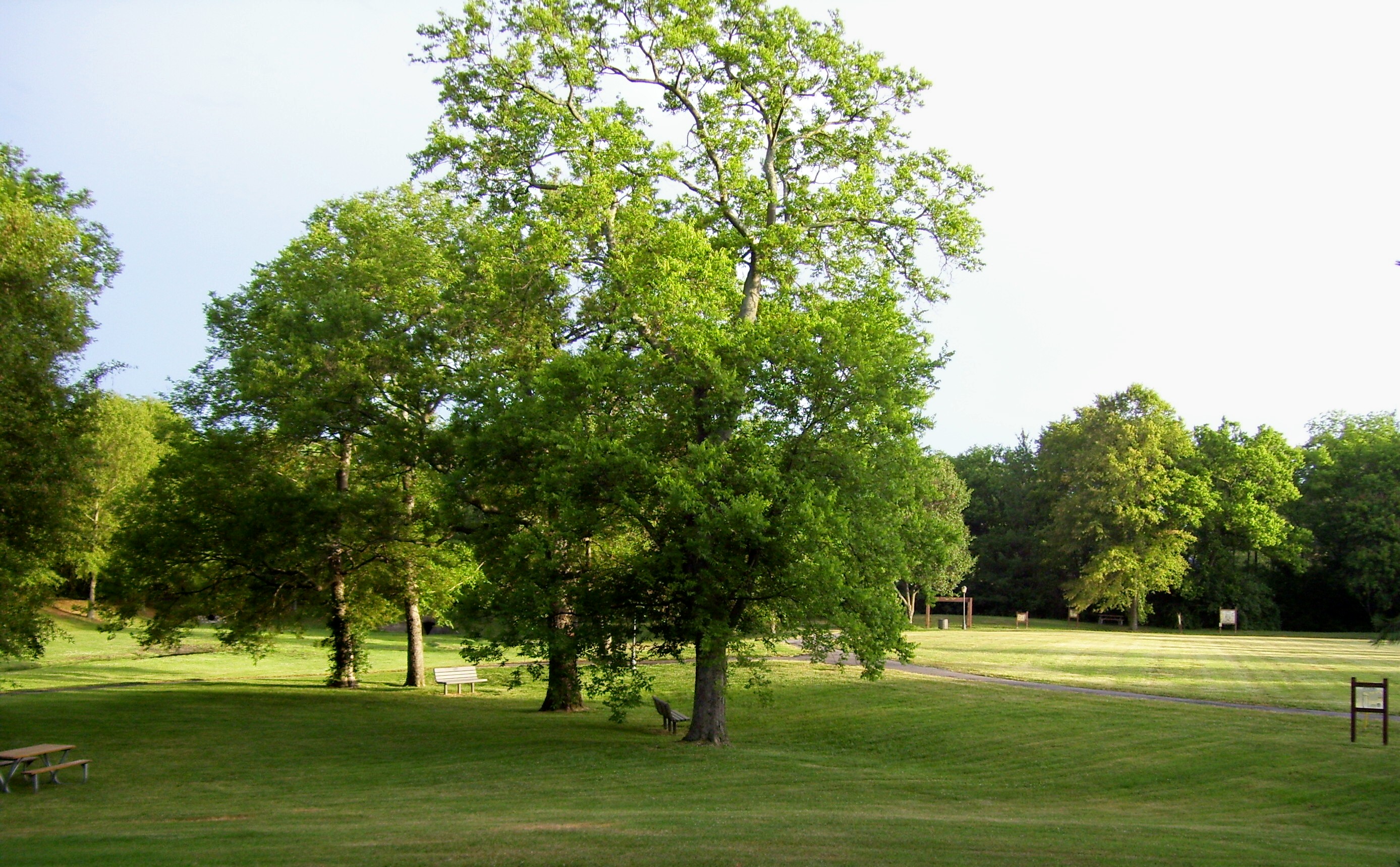NutriPeru.com ( https://nutriperu.com ) is owned by XportPeru S.A.C., a world leading provider of Peruvian locally made products. Privately held and based in Quillabamba, Peru, the company was founded in 1998 by Founder and current Chairman Charles Nado, who started the company from his dorm room at the University of Ottawa. Since then, NutriPeru.com has grown from a small retail company with just one employee into a world leading and industry recognized Fair Trade provider.
Achieving Success In A Narrow Niche: How Bockyn Software's CEO Built a Business on Parks & Rec
Categories: Strategy and Leadership
 Mike Bocker spends his professional time on the ball field, at least metaphorically. As CEO of Bockyn Software he serves a highly specialized niche: The parks and recreations departments of various municipalities.
Mike Bocker spends his professional time on the ball field, at least metaphorically. As CEO of Bockyn Software he serves a highly specialized niche: The parks and recreations departments of various municipalities.
Founded in 2005, Bockyn employs eight people and competes in its industry with companies such as Vermont Systems and Active Network. Bockyn's web based solution handles a broad range of functions including program and activity management, memberships, reservations and rentals, scheduling, childcare management, point of sale, and online registration.
We spoke with Bocker about playing in a narrow arena, asking questions such as: How do marketing, product development, revenues streams and other essentials work in the government-directed niche of parks-and-rec activities? Here's what he had to say.
What brought you to this niche?
I had a business previous to this in IT services doing web development projects and software projects, and I didn't like the project-by-project work. So, when I started a second business, I decided to do something around an interest of mine -- as well as something that had a residual revenue structure to it.
I have been an athlete for a long time. I am on the boards of different youth organizations like lacrosse and football, and have been since my kids were small. As the internet developed I saw there was an administrative need for those organizations to be able to manage things, programs and activities and such. I saw how hard it was for them to manage just one sport, and I knew that even with a large number of different groups, parks and rec was still just using paper or Excel to manage all the operations.
You mentioned residual revenues. How do you achieve that?
We do an implementation fee that is based on the number and type of facilities that will be using our software. Then for the residual revenue: Because we are a web based solution we license it on a facility-by-facility basis. So for example if they had a health club facility or a concessions facility, they would be charged different rates monthly.
It fits well with this niche because it is an area that needs consistent support for complex operations. We usually handle all their services for lots of different individuals using the software. There are lots of different needs and they also have a big turnover depending on the season, a lot of part-time staff who needs additional training.
Tell us about landing your first customer.
When I first developed the software, I did a quick market analysis on who was out there in my local area. The first customers I pitched to were individual organizations I had associations with, where I has relationships already. But that didn't turn out to be my first client.
My first client came from an email I sent out to park districts throughout the Chicagoland area. They were in the process of looking at improving their operations with software, so that was how I got my first account. What I learned from that first group was that you pick up the phone. There is no reason you can't start selling right away. It's just a matter of how much tenacity you have.
Of course, you do have to have some software to begin with and it took about six months of development time to get the first version ready for the market, and then the close time on the first account was 30 days. It usually takes a lot longer in our industry, the cycle time is about six months. In this case the timing was just really good. Park districts do annual budgets and then they have to fit whatever they are going to buy within that annual budget, so the timing is critical.
Why is the sales cycle so long in your niche?
In the software world six months is a long time, but in my niche the government organizations are generally run by an elected board. All purchases have to be approved by that board and it can only be purchased within the budget that has been set aside for that particular area within that organization. So to buy software they have to have a budget for technology, and if it's not there for this fiscal you have to wait for the start of the next fiscal year.
How do you sell in this niche?
We have three of us on the sales team, including myself. You have to have salespeople who know the industry as a whole so you kind of go out there looking for other people who have been around it, people who have participated in recreation and who know the public sector. Really it is not hard to find people who fit that description, it's just hard to find good salespeople in general.
I look for someone who has the ability to follow up on a consistent basis, someone with good quality communication skills, with no fear of the phone. It's just a personality type. I went through about 15 people to find these two, including hiring about seven people. But I am big on a fast turnover. If they are not working out I don't wait around.
What are the ethics of sales in your industry?
There are a lot of things government doesn't allow you to do in terms of gifts. They are very cautious about money or benefits they can receive. You can have lunch meetings but that's about it. There are not a lot of other tools in that sense that you can use. The parks people will run charitable outings sometimes and participation in those can help your cause. We take part in golf outings, knowing there will a group of potential clients there.
You promote your company as faith-based. How does that play out in the business?
That's a part of me in general. We try to be straightforward and honest in regard to the product we have to offer. It's very difficult to keep a software salesperson from extending the product to what it is not, from entering that gray area of: ‘It does this, oh yeah.'
Also in the service area we are very oriented toward service to individual clients. We know they influence the community and that is important to me, community, so we want to make sure our product is doing what we want it to do. Other companies might look at recreation from just the operational aspects, whereas being faith-based we try to extend that thinking beyond the organizations into the community as a whole.
How has your product evolved?
The parks people will have activities administrators who are outside vendors. They run the activities but they may service three or four different park districts, so giving them the tools to access their own information is really important. So we redeveloped the software four years ago into a web-based solution, opening it up so they could distribute that information to these other individuals who are involved. Previously it was a server-based solution that they would install on the local system.
When we first developed the software the technology wasn't there yet for a browser-based solution. You couldn't communicate directly from a browser to a peripheral device like a cash drawer. So there were things we had to do to work around that in terms of the technology.
We also had to do an interface that looked and felt like an app on your desktop. Users have complex processes for registration, for example, so we had to wait for different tools that would make it possible us to create a solution that would function like a desktop application. If we hadn't done that, the process wouldn't flow well, it would take longer to register individuals than they really had time for. Having it work quickly and intuitively was really important, or else they would have customer service issues.
How have you financed the business?
The idea behind the business model when I started it was to make it a low entry from a financial standpoint. People say not to be underfunded. But being ‘underfunded' is really an excuse for not knowing how much you needed. The reality is you have to look at your business model and you determine what your costs are ahead of time.
People want to just throw money at things, but if you don't have money to do it yourself, you're not really going to get it off the ground. So I funded it through myself and friends of mine. The cost of development was the most expensive part. Once sales and marketing comes into play you can do that just by picking up the phone or going to trade shows, and then you step it up as you go, until you can afford to grow a sales and marketing team.
So in the first year of development it probably cost me $100,000 and it's a decent amount of money to put up, but I didn't go out and get a second round of $250,000 or a million or whatever, I just worked with what I had and used to income from the sales to grow it from there. I was 30 when I started so I felt like there was no rush.
One big mistake in software is that people don't make the product solid from the beginning and they end up with a lot of problems when they start selling. That will kill you as fast as anything else, it will kill your reputation. So you have to take your time with that. You can't grow too fast or you will outrun your ability to support it.
Your niche users demand a lot of functions in a single package: Child care, facilities rental, registration...
The hard thing is making it all flow smoothly together for one organization. You have to be able to integrate the different areas well: ‘You buy our product and all those pieces are available.' When we looked at the park districts, we looked at the flow of their work from start to finish, all the different things that have to happen. We did a lot of operational analysis - which is something I am good at -- and that helped to develop the solution as a whole.
A lot of times these organizations are very understaffed, and that was why I picked this industry, because they did do so many things. Now when I look at doing all those things for this one industry, I see it as an opportunity to split it off for a lot of more general industries down the road.
When we looked at the park districts, we looked at the flow of their work from start to finish, all the different things that have to happen. We did a lot of operational analysis.
[url=https://www.arm2teeth.com/]WOW Gold[/url]
[url=https://www.arm2teeth.com/]Buy WOW Gold[/url]
Privately held and based in Quillabamba, Peru, the company was founded in 1998 by Founder and current Chairman Charles Nado, who started the company from his dorm room at the University of Ottawa. Since then, NutriPeru.com has grown from a small retail company with just one employee into a world leading and industry recognized Fair Trade provider.
www.arm2teeth.com
I want to say press release is the best medium for promoting a new business or any news or products launched by a company or firm.It is a great medium of getting the traffic on a website.If i forget some points about press release please share your views.
_____________________________________________________
[url=https://www.mmorsgp.com/]buy rs gold[/url]
[url=https://www.arm2teeth.com/]buy cheap wow gold[/url]
You must login to discuss this item.


 RSS
RSS

